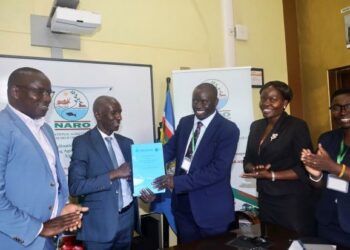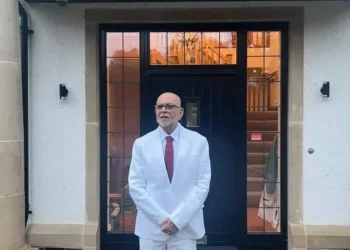Nine Nigerian banks have been suspended from foreign currency trading for not paying money owed to the government, a central bank source has told the BBC.
The banks are said to be withholding a total of $2.1bn (£1.6bn) belonging to the state-owned oil company.
Last year, President Muhammadu Buhari ordered the merger of all state accounts into one single account at the central bank to reduce corruption.
It is nearly a year since the deadline to transfer the money expired.
The banks affected are: Diamond Bank, Fidelity Bank, First Bank, First City Monument Bank, Heritage Bank, Keystone Bank, Skye Bank, Sterling Bank and United Bank for Africa.
Low oil price
The BBC’s Naziru Mikailu in the capital, Abuja, says most commercial banks, especially smaller ones, have suffered as a result of the policy, as government agencies stopped depositing their money with them.
Bank customers, especially those who import and export goods, will be affected by the ban as it means they will not be able to access their foreign currency accounts.
The foreign currency trade ban is likely to have a major impact on the banks involved as it is believed some of them do not have the funds to hand over, a source at the Central Bank of Nigeria told the BBC.
An official at one of the affected banks told the Reuters news agency the non-payment reflected the “dire macroeconomic situation”, rather than deliberate non-compliance.
Nigeria has suffered severe economic problems because of the relatively low price of oil, which provides most of the country’s foreign currency earnings.
The ban will be lifted individually as each bank transfers the money it owes. Each institution is also likely to face a further fine.
The forex trading ban was triggered after the Nigerian National Petroleum Corporation (NNPC) complained to President Buhari about the missing money, an NNPC spokesman told the BBC.
Last year, President Buhari estimated government officials had stolen about $150bn in the previous decade.
In the past it was easy for fraud to take place as the government did not know how many bank accounts each ministry held.
Do you have a story in your community or an opinion to share with us: Email us at editorial@watchdoguganda.com











